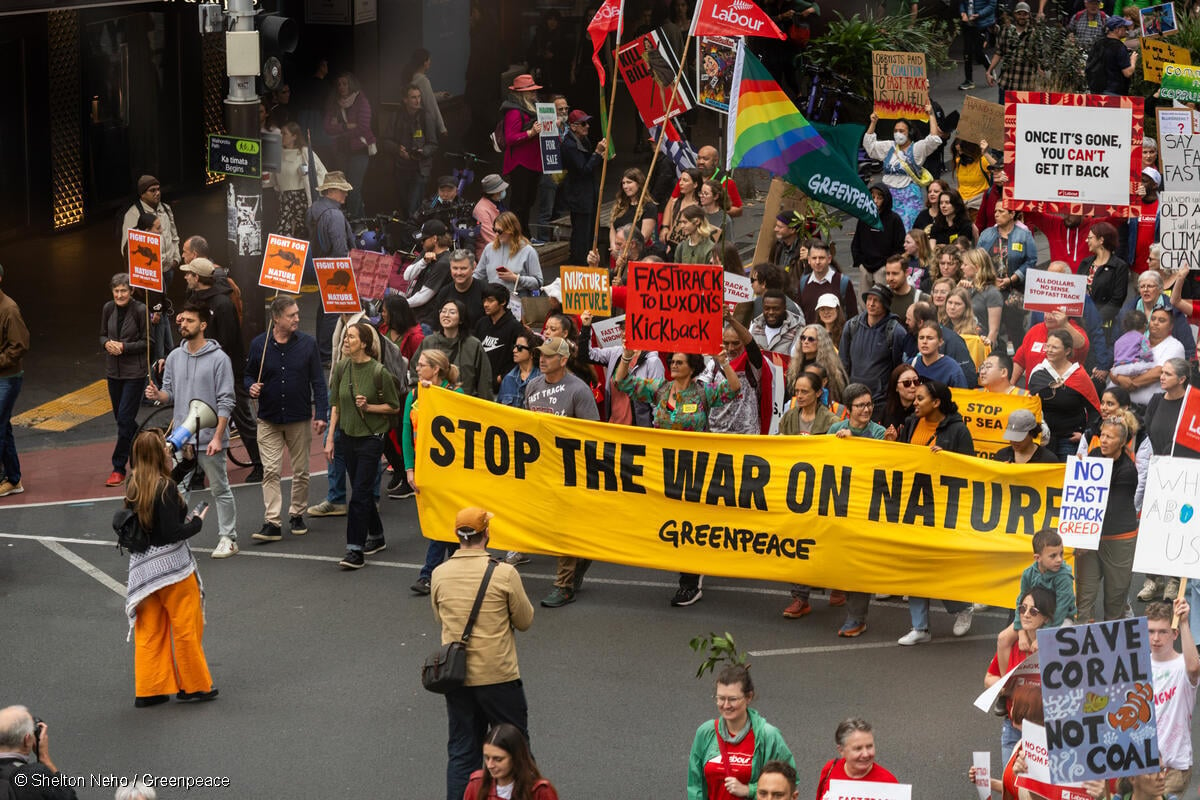In the last couple of weeks, climate change has been on the political agenda a lot. Big announcements on some of New Zealand’s major polluters – energy and transport – have signalled a move towards investing in at least semi-positive climate-friendly infrastructure. But New Zealand’s worst polluter, the agriculture industry, and in particular intensive dairy, has been left untouched.
In fact, worse than that. He Waka Eke Noa, the industry-led plan to reduce emissions from the agriculture sector, has fallen through, after years of negotiations between the agriculture industry and the government.
Was He Waka Eke Noa doomed from the start?
No polluting industry has ever regulated themselves out of existence. We’ve seen this with the oil and gas industry, and we’re seeing it now with agriculture. A partnership with the very industry that is responsible for a quarter of all of New Zealand’s climate pollution was destined to result in the same predatory denial and delay that we’ve seen from the agriculture sector for over twenty years.
We saw the fruits of that doomed partnership just last week, when the Government announced it would delay agricultural emissions measurement and pricing for even longer – a move straight out of industry playbooks. The control that this polluting industry has over our politics, and the much-needed action on the climate crisis, is unjustifiable.
Greenpeace is calling on the Government to scrap He Waka Eke Noa, and bring agriculture fully into the Emissions Trading Scheme. It’s time for the industry to pay the full price for its climate pollution – and that needs to happen now, not years down the track. We don’t have time for further delays.
He Waka Eke Noa shows we need a Government with the courage to stand up to Big Dairy.
Because we can have thriving ecosystems, a safe and stable climate, AND a world where we can all put delicious, healthy, and affordable food on the table. We can have an agriculture sector that works with, instead of against the land. We can honour Te Tiriti, address the intersection between colonisation and climate injustice that is so prevalent in the way our agriculture sector operates. We can transition away from intensive dairying, a model of farming that is harming both people and nature, and move towards more plant-based regenerative organic agriculture – working with, instead of against, the world we depend on.
To get there, we need to phase out the use of synthetic nitrogen fertiliser and imported feed, like palm kernel expeller (PKE). That’s what’s propping up the dairy industry, allowing it to expand to a scale that the land cannot sustain on its own. We also need the agriculture industry to fully enter the emissions trading scheme, so that it can no longer get away with polluting the climate unchecked.
But delaying agriculture emissions pricing isn’t the only big – and somewhat concerning – climate announcement the Government has made recently. Renewable energy was on the list too.
Next up, the Government’s renewable energy deal with BlackRock.
The Government just announced $2 billion dollars to be invested in our energy sector to reach 100% renewable electricity- but it’s coming from an international private equity firm which has billions more invested in fossil fuels. Smells like greenwash – and without any details, Greenpeace Aotearoa is sceptical as to the consequences of putting even more of our electricity grid in the hands of international, profit-driven investors.
Greenpeace believes that renewable energy should be publicly and locally owned. We’re calling for investment into community energy projects, and in particular, into household solar, to put power back in the hands of communities and to increase climate resilience in the face of increased extreme weather events due to climate change.
And now, the (semi) good news.
If you’ve ever been stuck in crawling traffic at 8am on your way to work, braved the school drop-off, or attempted to head home during rush hour, you already know that our transport systems suck. No one wants to spend their morning sitting in a car, practically at a standstill, while drivers impacted by road rage honk their horns and pedestrians are moving faster than you are. Well, we can change this – and the solution is better for both climate and people.
The Government’s recent land transport policy, despite angling to set up a large number of new roading projects, did highlight planning for new public transport infrastructure. This is a step in the right direction – although it’s nowhere near enough.
We need Government spending on transport to prioritise public transport, walking, and cycling.
Public transport should not be the afterthought at the end of a long wishlist of planned motorways. And we should all expect a lot more from the Labour Party in the lead up to the 2023 election.
Ultimately, across the board, we’re seeing that political parties have been hamstrung by industry denial and delay when it comes to addressing the climate crisis. New Zealanders deserve better. We deserve a Government that takes this existential threat seriously – because we still have time to turn this around.
That’s why we’ve launched our ten point plan for climate action.
More than 13,000 people have signed on to Climate Shift since it launched in June – will you join them, and add your name to our call for urgent climate action from all political parties this election?
Together, we can build communities that are well-resourced and resilient to extreme weather events. Where schools, hospitals, and entire communities are powered by locally-owned renewable energy. Where our agriculture systems work in harmony with nature, restoring ecosystems and rewilding nature. We all have the right to a safe and stable climate, and thriving environment, and together, we are making that future a reality.



